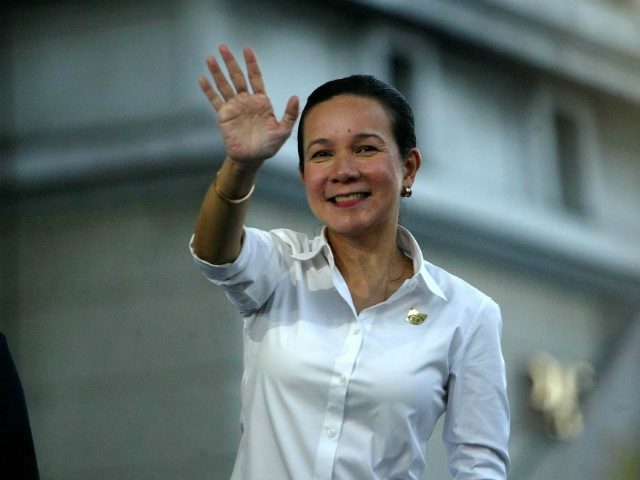SUMMARY
This is AI generated summarization, which may have errors. For context, always refer to the full article.

In its December 1 decision, the Commission on Elections (Comelec) Second Division cancelled the certificate of candidacy (COC) of presidential aspirant Grace Poe on the ground that she committed misrepresentation regarding her residency.
Contrary to her declaration in her COC that she had resided in the Philippines for 10 years and 11 months, the division concluded that she had lived in the country only for 9 years and 6 months, thus, falling short of the 10-year residency period required by the 1987 Constitution for those aspiring for the highest post. (READ: Why Comelec division cancelled Grace Poe’s candidacy)
This pre-election litigation is more complex than that, however. Poe can still file a motion for reconsideration with the Comelec en banc. If the commission does not favor her, then she can still elevate the case to the Supreme Court.
There are 3 major issues related to her case:
The Comelec did not disqualify her. Strictly speaking, it cannot.
- Under the Omnibus Election Code, there are two pre-election remedies that may be filed against any bona fide candidate: a Petition for Disqualification under sections 12 and 68; and a Petition to Deny Course under Section 78.
- The Petition for Disqualification is limited to grounds like insanity, incompetence, conviction for the crimes of subversion, insurrection, rebellion among others. Ineligibility or absence of qualification is not one of them.
- On the other hand, a Petition to Deny Course admits a single ground. Under Section 78, a COC may be denied due course or cancelled when a candidate commits “material representation” in his COC. Under prevailing jurisprudence, that means one should prove that there is “deliberate attempt to mislead, misinform, or hide a fact which would otherwise render a candidate ineligible. In other words, it must be made with an intention to deceive the electorate as to one’s qualifications for public office.”
- Petition to Deny Course, however, does not tackle the qualification of the candidate per se, but whether the candidate committed any deliberate misrepresentation in relation to those qualifications. Bad faith being an indispensable element of the petition, good faith naturally is an available defense. Thus, an ineligible candidate who made an erroneous declaration in an honest belief that he possesses all the qualification cannot come under the provision.
- Despite the above distinctions, the two remedies have the same effect of eliminating a candidate from an electoral race. This is why candidates have long exploited these remedies to eliminate opponents without the benefit of an election, or to simply increase their chance of winning. From the perspective of cost, this is the cheaper way to win an election.

Questions pertaining to a president’s qualifications are determined by the Presidential Electoral Tribunal, post-election.
- It is settled that the Comelec has no power to inquire into the qualification of candidates. Under the present election law framework, such remedy is not available to litigants. I can think of two reasons and I will speak in relation to presidential candidates:
- First, the 1987 Constitution itself vests the sole and exclusive jurisdiction over questions relating to qualifications of the president to the Supreme Court sitting as the Presidential Electoral Tribunal (PET). Giving the Comelec such power to resolve questions of qualifications of presidential candidates would certainly be a diminution of that authority. That said, PET’s jurisdiction may only be invoked against a duly proclaimed president and that opportunity would not come until after elections.
- Second, the nature of pre-election proceedings before the Comelec – like the Petition to Deny Due Course – is “summary.” This means no hearings are generally conducted and evidence are limited to documentary submissions. Residency and citizenship are factual issues so complex that they would require a full-blown judicial trial. That would require an exhaustive presentation of relevant documents, careful examination thereof, and hearing of relevant testimonies.
- Whether this scenario was intended by Congress or was a mere legal oversight, the fact remains that the Comelec has no jurisdiction to rule on the qualification of Grace Poe or of any other candidate. Following the Supreme Court’s oft-repeated caution, Section 78 can neither be made to fill this perceived vacuum in our electoral system; nor can it be an excuse for the Comelec to arrogate unto itself an authority withheld from it.
Grace Poe’s name will likely still appear on the ballot.
- Yes, her name will still be on the ballot – unless the decision cancelling her COC becomes final before the scheduled printing of the ballot in early January 2016. Grace Poe, however, is expected to elevate the Second Division decision to the Commission en banc through a Motion for Reconsideration. Any party not satisfied by the en banc’s ruling can further go up to the Supreme Court via Certiorari. With that, I do not see any possibility that her name will be excluded from the ballot.
- Should the cancellation of her COC become final before the May 9, 2016 elections and with her name already printed on the ballot, any vote in Grace Poe’s favor will simply not be counted.
In sum, the December 1 decision of the Comelec Second Division is only the beginning of what will be a long legal battle for Grace Poe – a situation reminiscent of what happened to her father back in 2004. – Rappler.com
Emil Marañon is an election lawyer who served as chief of staff of recently retired Comelec Chairman Sixto Brillantes Jr. He is currently studying Human Rights, Conflict and Justice at SOAS, University of London, as a Chevening scholar.
Add a comment
How does this make you feel?
There are no comments yet. Add your comment to start the conversation.